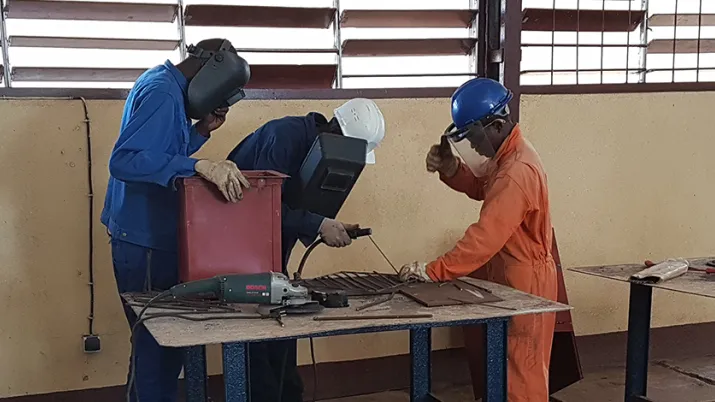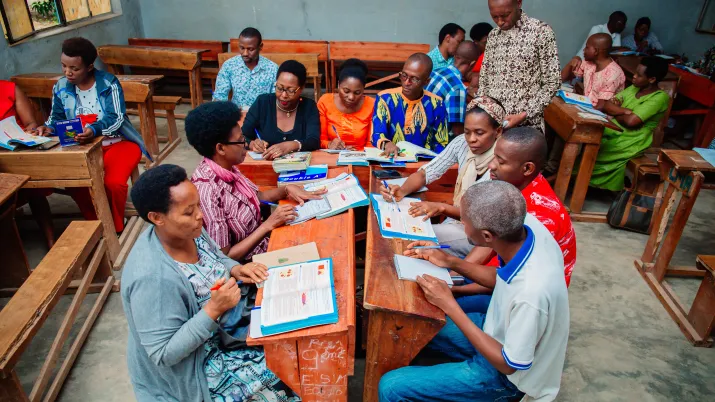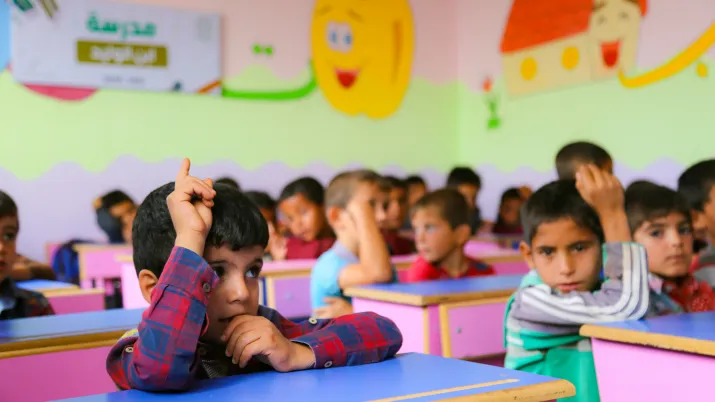Share the page
Our cooperation in promoting universal access to education - Our work and impact
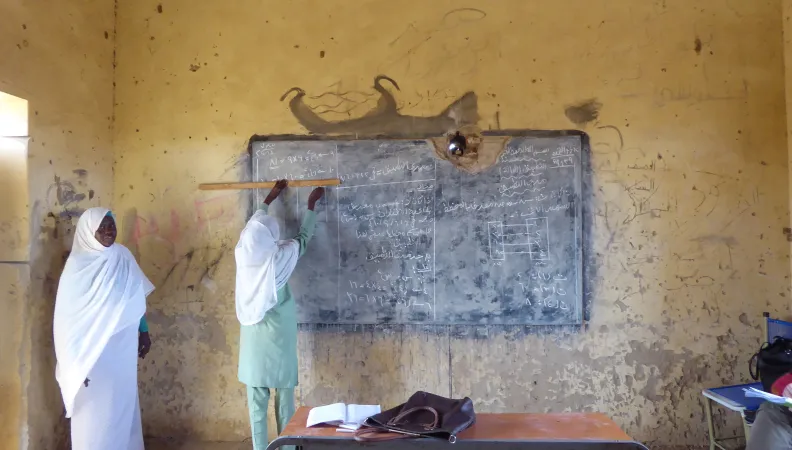
In addition to being a fundamental human right, education is also a strategic economic asset that can significantly increase national productivity.
Despite this, many countries are still struggling to meet their populations’ educational needs:
- 128 million boys and 122 million girls worldwide do not attend school
- There is a global shortage of 44 million teachers to ensure universal basic education by 2030
- Basic education still requires a high level of funding ($40 billion per year, mainly in Africa), yet international funding has fallen by 7% in this sector, and by 20% in Sub-Saharan Africa
70 % of 10-year-olds in low- and middle-income countries are unable to read a simple text (compared with 57% before the COVID-19 pandemic)
As France’s international development cooperation agency, we carry out numerous projects around the world, particularly in crisis-affected contexts, to reduce inequalities in access to good-quality education (basic education, higher education and research).
Our strategic priorities
We work across the entire education continuum and support employment and decent work policies to guarantee universal access to basic skills and support fair transitions (especially in the energy and digital sectors). We do this as part of our broader objectives to reduce inequalities and strengthen social cohesion.
One of our key goals is to empower people to realise their full potential throughout their personal and professional lives, from infancy to old age. More specifically, we aim to directly promote universal education, higher education and training, entry to the labour market and access to paid employment, entrepreneurship and decent work, especially to support fair climate and energy transitions, now and in the future. Particular emphasis is placed on:
- Ensuring universal access to a shared wellspring of fundamental knowledge and skills, in particular by training teachers and education managers and setting up good-quality education systems
- Empowering girls and women by supporting gender equality across the entire education continuum
- Supporting the development of higher education systems, the training of trainers and the development of training courses and curricula by promoting dialogue between French stakeholders and partner countries to showcase French higher education around the world
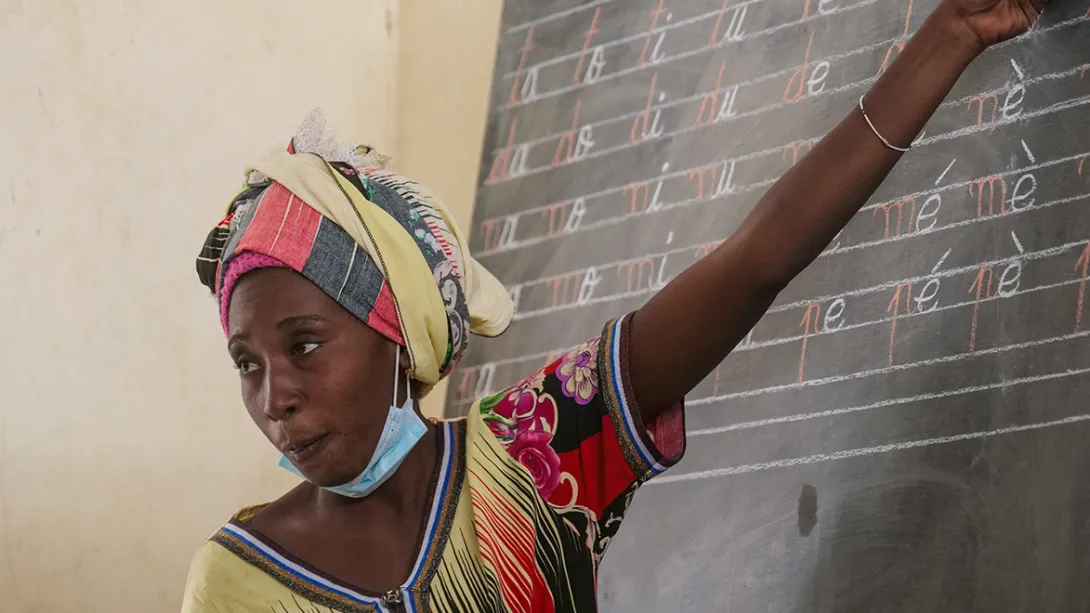
Our work covers the following focus areas:
- Support the development, management and evaluation of public policies for education, higher education and research
- Improve governance in education and higher education systems
- Strengthen the institutional capacities of public bodies responsible for primary and secondary education
- Professionalise higher education
- Support digital transformation (system management, digital training opportunities, strengthening digital skills) and promote the use of digital technology
- Promote inclusiveness in education (access to education for girls and vulnerable groups)
- Improve training and Continuing Professional Development (CPD) for teachers, head teachers and supervisors, as well as the management and attractiveness of the teaching profession
- Promote research in the field of education
- Strengthen regional cooperation in inclusive, good-quality basic education, including in sustainable development and digital technology. Promote knowledge management in research (in terms of producing new knowledge and building on existing knowledge), science, technology and innovation
- Foster collaboration between European agencies and promote a “Team Europe” approach, as well as peer-to-peer dialogue at regional level and with Europe
- Set up emergency education schemes to guarantee children’s continued and safe education in crisis contexts, and integrate these schemes into international emergency response plans
“Education, in a lifelong learning approach, is a key soft infrastructure pillar of the Global Gateway initiative. We are working with partner countries to strengthen cooperation in research and innovation and transform education systems. Our education investments aim above all to ensure quality education and skills training for all. Economic growth depends on an educated, qualified workforce and healthy societies.”
- European Commissioner for International partnerships

Our framework for action
The transformative power of education, as described in UNESCO’s “Education 2030” Incheon Declaration and Framework for Action, ensures individual fulfilment, promotes stability and security, and provides opportunities for full employment and access to decent work as a means to fight poverty.
Our Contract of Objectives and Means, an agreement between Expertise France and the French government that sets out our budget and strategic priorities for the coming years, stipulates “action for universal education, higher education, vocational training and entry to the labour market” as one of our objectives. We also work to achieve the Sustainable Development Goals (SDGs), especially SDG 4 about “ensuring equitable access to quality education for all, and promoting lifelong learning opportunities”. This is why we pay special attention to the education-training continuum and access to employment for young people in all our projects.
Our work further aligns with the Agence Française de Développement (AFD) Group’s education strategy, as well as with the European Union’s Global Gateway initiative, which aims to invest in quality education and lifelong learning, especially for vulnerable groups.
Our services in this area
Our services in the field of education cover two components – basic education; and higher education and research:
- Basic education: Promote inclusiveness in education (access for girls and vulnerable groups); support the development, steering and evaluation of public policies for education; provide institutional capacity building; improve training and CPD for teachers, head teachers and supervisors; improve the management and attractiveness of the teaching profession; and support the digital transformation.
- Higher education and research: Improve governance in higher education systems; increase access for vulnerable groups; professionalise training courses; enhance the quality of teaching in line with market needs and Global Gateway priorities; strengthen international exchange and research; and develop blended learning, MOOCs and connectivity in higher education and research institutions.
Resources for download
FAQs
For more about education, higher education and research
Despite international commitments, global inequalities in education remain high, especially since the COVID-19 pandemic: 70% of 10-year-olds in low- and middle-income countries are unable to read a simple text, compared with 57% in 2019.
The lack of teaching staff in schools is a major driver of these inequalities, with a shortage of 44 million teachers worldwide to achieve universal basic education by 2030. These delays jeopardise all Sustainable Development Goals (SDGs) – in particular SDG 4 on the right to education. They also cost states and the economy an estimated $10 trillion according to UNESCO.
Inequalities in access to education can be geographical, social, economic and gender-related. Vulnerable groups are the most affected, especially girls, disabled children, displaced children, and children living in conflict zones.
Inequalities in access to education stem from multiple causes, including:
- Inadequate resources, infrastructure and equipment
- Limited teacher training
- Conflicts and crises that disrupt access to education
International cooperation plays a fundamental role in reducing educational inequalities by helping partner countries transform their education systems. It also helps them secure funding and technical expertise and strengthen institutional capacities, especially in low-income and crisis-affected countries.
In this way, international cooperation helps to gradually address structural imbalances, improve access to and quality of education, and strengthen the resilience of education systems to crises and emergency situations.
Expertise France works across the entire educational continuum, supporting inclusive public policies, teacher training, digital transformation, and access to education for vulnerable groups including girls, rural populations and people with disabilities.
Our projects
PEERS - Africa-Europe Partnership to Exchange on Education Reforms
Ongoing
2025 - 2030
Funders : European Union
Key figures in 2024
- 12 ongoing projects in 14 countries, for a total budget of €118 million
- 393 organisations received support in delivering basic education services
- 2,107 staff strengthened their skills/knowledge in delivering basic education services through our projects
- 340K students received educational support through Expertise France projects

